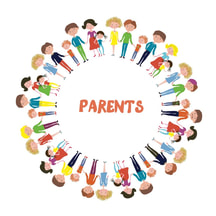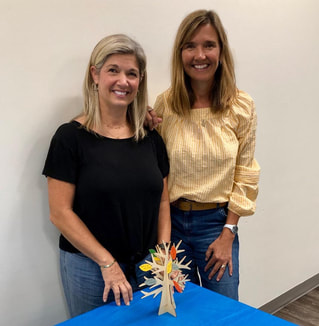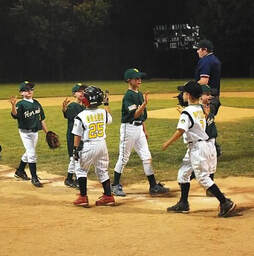|
On January 13, 2023 PDW hosted the healthiest of all happy hours! Our event, Happiness Hour, was a free workshop where Yoga Barn instructor and expert health coach Heather Gwaltney shared ways in which people of all ages can easily practice healthy coping skills.
Attendees tried cleansing breathwork, chill-out yoga poses like seated forward fold and cat/cow, and participated in some endorphin-releasing meditation. We learned about the stress-busting effects of regular journaling. We discussed the importance of clean nutrition and adequate sleep. All while gathered in the safe and peaceful space of the Yoga Barn at 44 W. Earleigh Heights Road in Severna Park. Thank you to all who attended, and especially to the beautiful Yoga Barn and Heather. What a pleasant, effective (and substance-free!) way to start the weekend on a healthy note. Hope you can join us for the next one. You will be glad you did. Please take a look at this Loving Kindness Meditation (LKM) script and information which explains how this practice can cultivate compassion and acceptance in ourselves and all others. After trying this meditation, you are given the opportunity to reflect on your experience and start to discover the benefits for yourself.
0 Comments
Head on over to our Resources page!
Our latest book recommendation is by the parenting experts Dr. William Stixrud and Ned Johnson. Perhaps you attended the author talk hosted by Severna Park High School in October 2019 on their first book, The Self-Driven Child. Their new book is called What Do You Say? How to Talk with Kids to Build Motivation, Stress Tolerance, and a Happy Home. This one is a guide to effectively communicating with teenagers. And these two experts certainly know teenagers! Dr. William Stixrud is a clinical neuropsychologist and an authority on adolescent brain development. Ned Johnson coaches students on how to manage stress while motivating and empowering them to reach their full potential. With a combined 60 years experience collaborating with teens, Stixrud and Johnson have a lot to share. They believe that parents can empower kids to take control of their own lives, and that kids will be happier with this approach. They believe in the powers of meditation! And they believe that parents can train themselves to be better listeners and more effective communicators. Even when it comes to the thorny topics. Here is a great new YouTube video with the authors! We hope you enjoy.  Here is our list of tangible and specific ideas to help elementary students prepare for heading back into the classroom: Getting ready for “back to school” takes on new meaning this year, following last year’s unique experience. Here are things you can do at home to help your student prepare for this important transition. Start the School Routine Early As part of back-to-school prep, you should get kids back into the swing of the school routine several weeks before school starts. Most families do not keep their standard bedtime during the summer, so it’s time to start enforcing it again. Same thing with when they get up. Early bedtimes usually go out the window over the summer break, but young minds need plenty of sleep to be ready to learn. Get back into a set bedtime routine now so your child isn’t up late the night before the first day of school. Taking this approach ensures they’ll be primed for a more formal schedule and the transition out of summer will be smoother. Play Board and Word Games Playing games over the summer is a great way to keep your child’s mind engaged and focused on building learning skills. This will help make sure your child is prepared when classes start and make the back-to-school transition a smoother one. Read Every Day Learning shouldn’t stop over the summer. Each day, take at least 30 minutes to sit with your child and read together. This will keep them engaged with learning and in the routine of daily schoolwork. It’s like exercising a muscle – this is a good daily practice. Help Ease Back to School Jitters Preparing kids a few weeks in advance for the school year is a must. Remember your school jitters: Will I fit in? Who will I sit with at lunch? What will my teacher be like? How do I find my way around such a big school? Help to calm your child's anxiety – and maybe even your own. Listen to your children's concerns and talk through them. Avoid saying don't be scared or they may feel invalid and shut down. After last year, when families were together more, recognize that students - and parents - may have a tougher time separating when the school bell rings this September. It’s understandable and normal. Practice Tasks Remember that for most students, school will take place AT school this year, not in your living room. It’s a good idea to use opportunities to practice tasks children may need to handle at school (more) independently. Yes of course teachers and school staff will be there to assist but it’s not quite the same as being at home where mom and dad can take care of things quickly and with ease. Give your child chances for age-appropriate independence and set a positive tone of encouragement with reminders that things take practice and time. As the saying goes, “Practice makes progress” and that’s the goal – not perfection – but continued development, which is not the same for everyone...even the children in each household. Specific tasks that help with such development:
 Congratulations to the Woods Counseling and Care Center on their parenting blog, packed with relevant articles on mental health and wellness for families. Check it out here: http://woodsccc.org/parenting/ We thought you would enjoy one of their most recent posts, from our very own board member Barb Gass: As a mother of three and grandmother to seven (age 18 months to 18 years), I have had many experiences in parenting (some more successful than others) and am very aware that I will be exposed to many more in my remaining years if I remain engaged and present. The presentation in April by the Mental Health Collaborative in partnership with our local Parenting for a Different World (www.pdworld.org ) is an example of continuous learning through engagement. Did you know that mental illness and good mental health can co-exist and that many individuals with mental illness are mentally healthier than those without? Did you know anxiety is a normal feeling experienced by all at some time or another? Did you know that showing support for a teen can be as complete as listening to a rant about the unfairness of life and validating the feelings? These are facts presented in the above-mentioned local presentation. As a parent, can you allow your teen ten minutes of “whining” so they can get it out and move on? Can failure be an opportunity to learn other skills, maybe even “out of the box solutions” rather than looking at it as just a problem to be fixed? Can a parent encourage a shy, timid child to commit to trying a sport, music or dance class, or a new game or activity three times before deciding they do not want to play? After three times they can quit or stay, no questions asked. “I am your parent not your friend, but I do love, trust, and believe in you and your capabilities” is a very powerful statement. These are tools I learned on my parenting journey through exposure to others. I do believe “It takes a village.” https://woodsccc.org/learn-engage-remain/  Remember when you were a kid and you did something “just for the fun of it?” When you were not looking for a specific end result such as an excellent grade, a trophy, or an accomplishment that you could declare on your college application? October’s talk explored the notion that children need more of this kind of “just for the fun of it” activity. Today, our kids face competitive academics, over-scheduling, and the pressures of social media. Kids need time to just ‘be.’ Parents who try to control too much of their kids’ lives may contribute to their heightened stress and anxiety. Instead, parents can better help their children by encouraging more downtime, meditation, and sleep. This is what I learned last month. PDW took a field trip in October to attend Severna Park High School’s Author Talk with the writers of the “The Self-Driven Child.” Dr. William Stixrud and teen coach Ned Johnson believe that parents need to encourage a healthy sense of autonomy in their children. Parents should think of themselves more as “consultants” and less as “project managers.” Showing children that we trust them to make their own decisions and take responsibility for their actions helps them to grow strong and confident, and to learn who they really are. It helps them to build their resilience as they work through challenges for themselves. We all want our children to have a healthy brain so that they can enjoy adulthood. Stixrud and Johnson are here to help us work towards that goal. There are multiple paths to success. Stixrud and Johnson put it plainly that not every child should be on the same path to adulthood. What “success” means to one child could - and should - look quite different to his friends. The invaluable part of growing into adulthood is having that chance to thrive; a chance to see that success can be defined in many different ways. When a child feels loved, trusted, and supported he will find the courage to make his own decisions and forge his own way. This duo has an approachable, easy-going manner of explaining their research. They believe in parenting with kindness and compassion. They spoke of the importance of thinking beyond your current situation in order to plan for the future. They have a fine sense of humor, which comes in handy when parenting. Their advice is backed by their extensive research and experience counseling thousands of teens and children. They shared their personal stories of trying to practice what they preach, like the time the pre-teen son of Mr. Johnson failed to complete a school assignment. When asked why he had not completed the assignment, he replied, “Because Mom forgot to remind me!” Mr. Johnson and his wife later spoke alone together about how their son should not rely on reminders from his mom and better yet, that she should cut back on the constant reminders and hand-holding. We all found ourselves smiling and nodding our heads in agreement throughout the discussion. Many attendees stayed after the talk to continue the conversation with these two engaging researchers. They were open to staying as long as needed, to talk one-on-one, answer individual parenting questions, and to offer more specific advice. My firstborn will probably be going away to college next fall. I plan to continue to make an effort to follow Stixrud and Johnson’s guidelines in order to let her feel confident enough to let go when that time comes. While our children living under our roof my husband and I need to allow for small failures so that they are able to learn for themselves and grow. Often this is easier said than done, so this reminder is always welcome. My husband’s cousin Chad tells the story of trying to travel to Kansas City from a college trip abroad in time to meet up with the whole extended family for a special reunion and portrait session. I find this to be a great example of resilience; a young man who weathered the storms and figured out things for himself. This was decades ago, when the now forty-something Chad was a young adult. He had called his grandmother to explain that he faced multiple travel delays and inconveniences in Europe. He was not certain that he would return in time for the big family portrait appointment. All his grandmother said to Chad was, “I know you can do it. We’ll see you there.” There was no offer to help, to come to his rescue, or tell him it would be acceptable if he missed the family portrait. Chad then worked out a plan to fly back into the country, first landing in New York, catching a train to St. Louis, then finding a bus to take him to Kansas City. This ultimately involved a straight two days of travel. He did not rely on the help of his parents or grandparents. He made multiple phone calls, arranged rides from other travelers, re-arranged ticketing, and finally got himself to Kansas City. He knew this was important to his grandparents and he knew that he was the only one who would be able to work through the challenges. Apparently, Grandma also knew that she could count on him to help himself. There were no questions like “Do you think you can possibly handle all of this?” It was simply, “We’ll see you there.” And they did!  Reflecting on September’s A Talk in the Park, I can’t help but notice that the tips for a smooth, less anxious back-to-school transition could be applicable to people of all ages! Who doesn’t feel more balanced with the correct amount of rest, some down time with family, and healthy eating habits? See below for some tips and tricks to start your year off right! Anxiety-easing tips from School Counselor, Nina McNealy, MS: 1. Is your child…Physically prepared? Well-rested and well-fed? 2. Is your child… Emotionally prepared? 3. Think of making visits to new school/classroom/bus stop/playdates with classmates & school friends. 4. Structure the school week:
6. Seek help if problems persist or escalate. Sleep Recommendations (adapted from the American Academy of Sleep) Newborns (0 – 3 months): 14 - 17 hours Infants (4 – 11 months): 12 – 15 hours Toddlers (1 – 2 years): 11 – 14 hours Preschoolers (3 – 5 years): 10 – 13 hours School Aged (6 - 13 years): 9 – 11 hours Teens (14 – 17 years): 8 - 10 hours Adults (18 + 64 years): 7 – 9 hours Older Adults (64 +): 7 – 8 hours 9 Tips for Minimizing Back-to-School Stress 1. Start a healthy sleep schedule and stock up on healthier foods. 2. Take breaks to notice your breathing. 3. Do one thing at a time. 4. Don't forget to do things you enjoy. 5. Reduce pressure and expectations. 6. Notice when you jump onto the train of thoughts. 7. Appreciate who you are. 8. Be open to new experiences and see the same things with fresh eyes. 9. Use mindfulness when you do your homework or take tests. Summer Book Club What Made Maddy Run: The Secret Struggles and Tragic Death of an All-American Teen  A Talk in the Park’s August meeting was centered around ESPN columnist Kate Fagan’s book What Made Maddy Run: The Secret Struggles and Tragic Death of an All-American Athlete. I hadn’t yet read the book when I entered the community center that night, but I would leave not only eager to do so, but also very interested to learn more about the pressures students and athletes are under in a world where anxiety and depression rates have soared and the role of social media comes into question. Athletic and academic pressures start earlier than ever. Everyone in attendance could agree on that. A young mom in the audience shared that she is present because she is already feeling the pressure for her kindergarten-aged child to perform. Listening to her I am at first grateful I was still so blissfully ignorant at that point in my children’s lives. Seconds later I am reminded of the time I was told I needed to get my son on the highest-level sports team available to him - as soon as possible – if he had any hope of playing sports for the high school. He was 8. Our panel (consisting of a high school counselor, psychotherapist, and former D1 college swimmer) tell us that perfectionism starts young, and especially in people-pleasing girls. The ease and frequency of social media use to portray a perfect identity perpetuates this falsehood. Worse, the impact this has on others may result in never-ending comparisons, inaccurate self-talk, anxiety and depression. Licensed Psychotherapist Erica Martin shares, “Most of my middle and high school clients verbalize mixed feelings about social media. On one hand, it keeps them connected. On the other hand, it also allows them to be privy to all of the times they are being left out. It is the proverbial double-edged sword.” She goes on to say, “It is important as a therapist that I understand that this is their world. We work a lot on self-identity and how to avoid falling prey to the pressure of ‘being perfect’ and overachieving.” “Regardless of its merits or perils, social media takes up a significant amount of brain space for many kids and, let’s face it, adults too,” says high school counselor Samantha Straub. “It’s a huge distractor. The lure of the next notification, combined with the comparison-culture that social media seems to breed, seems to be causing some kids angst.” So why do our kids think that they mustn’t ever fail? Is it social media? Their parents? Their peers? Why do they not give themselves permission to get help? A parent at the meeting expresses frustration that the idea of Maddy going on medication (in the book) is never mentioned. Another parent shares that athletes don’t like to go on medication because it might alter their performance. In this moment I am paralyzed by the idea of how hopeless one must feel to think they have to choose between their mental health and physical performance. Yet Maddy didn’t even want to run anymore, so how did she get to the point of suicide? Why are more people not talking about suicide, and depression, and anxiety? It’s okay to talk about it, professionals including our panel say as much. If someone is depressed, they have likely already thought about suicide so will need to talk about it. It’s important that we ask the hard questions:
In this way social media might even be seen as a positive. It can be a “wonderful platform to check in on a friend, be an ally to those in need, or to promote important causes,” according to Samantha Straub. “Social media is not going anywhere, so I think it’s important to recognize and praise moments when kids use social media for the good of others or their community. One mom shares with me after the meeting that even though the subject matter was incredibly heavy, the entire discussion left her hopeful. “There are resources, and we are fostering a supportive community receptive to having these difficult, personal, conversations, whereas I don’t think that was necessarily true a few years earlier.” I agree. Suggested Reads*: (1) The Happiness Effect: How Social Media is Driving a Generation to Appear Perfect at Any Cost by Donna Freitas (2) Girls Just Want to Have Likes: How to Raise Confident Girls in the Face of Social Media by Laurie Wolk (3) Untangled: Guiding Teenage Girls Through the Seven Transitions into Adulthood by Lisa Damour (4) Under Pressure: Confronting the Epidemic of Stress and Anxiety in Girls by Lisa Damour (5) Enough As She Is: How to Help Girls Move Beyond Impossible Standards of Success to Live Healthy, Happy, and Fulfilling Lives by Rachel Simmons *Some of the recommended books were based on the fact that Maddy was a girl.  REFLECTIONS AND TAKE-AWAYS FROM OUR MONTHLY SERIES, A TALK IN THE PARK. The planned discussion for A Talk in the Park in June 2019 centered around finding balance in high school experiences as well as life beyond high school. How does a student keep it genuine, concern himself only with his own unique needs, and avoid being swayed by the things that everyone else around him is doing? It is easy to get caught up in thinking that one ought to follow the college and career plans of the majority, but we appreciate the reminder that everyone’s future needs are going to look different. How does a student go about finding his unique path while keeping this in mind? Our panel of former Severna Park High School students included Gabby, Lily, Izzy, Julia, and Sean. Student panel member and opening speaker Gabby shared that as early as her middle school years, she longed to attend William & Mary University. When she did not receive an acceptance letter from William & Mary, things took an unexpected turn. Gabby somewhat reluctantly opened her mind to the prospect of college life somewhere else other than her “dream school.” Her guidance counselor suggested that she consider Elon University. Gabby had a positive undergraduate experience at Elon, meeting lifelong friends and faculty mentors, and discovering her passion for civil rights work. She went on to pursue her law degree at, of all places, William & Mary. The challenges she faced during her college selection process helped her to develop a strong sense of resiliency. Her “failing forward” lesson was well-received. We took note of Gabby’s advice about the Pumpkin Spice Latte (“PSL”) mindset. Work on your “Personal” character first, then second priority is your time as a “Student.” Finally, that third priority is “Leadership.” Of most importance is your own personal self care, then your studies, and finally your additional leadership positions or extracurriculars. The panel of students were all in agreement that there is nothing wrong with simply being good at one thing, rather than being involved in many activities and potentially juggling too much at once. Student panel member Julia encouraged the students in attendance to “know yourself.” Understand your own limitations, and involve yourself in activities and classes that feel right to you. Explore some standard classes that sound fun or interesting to you. When asked for tips on relieving the stress that many of today’s students face, the panel agreed that it is helpful to get involved in your school and community. Attendees were encouraged to consider joining the Unified Sports program at SPHS, a church or youth group, retreats, and meaningful clubs such as Alex’s Lemonade Stand Foundation. The panel commented to the attendees that they saw hope in the fact that this conversation was even taking place. They said they rarely had opportunities to discuss such topics in an open forum like Parenting for a Different World’s A Talk in the Park. It is a great start. One parent shared that it would be wonderful for our children to simply be told more often, by families as well as school administrators, “You are enough… just as you are!” |
Archives
February 2023
Categories |
|
Parenting for a Different World (PDW) is a 501(c)3 nonprofit organization, as recognized by the Internal Revenue Service. Your donation to PDW allows us to continue our meaningful work building a healthier community. Contributions may be deductible for income tax purposes, in consultation with a tax professional.
|
Website designed by PDW 2024
All rights reserved Images licensed through Shutterstock.com
|

 RSS Feed
RSS Feed